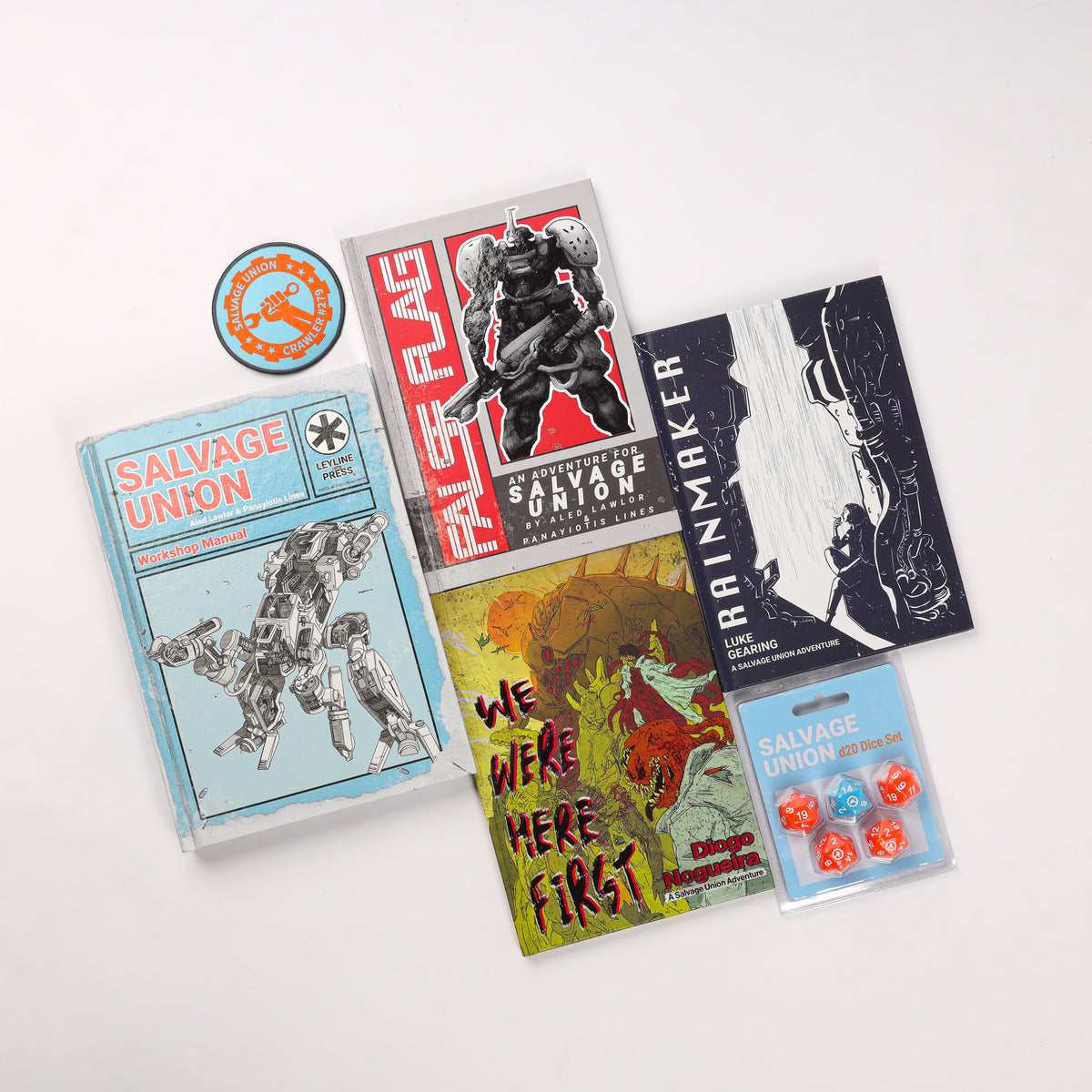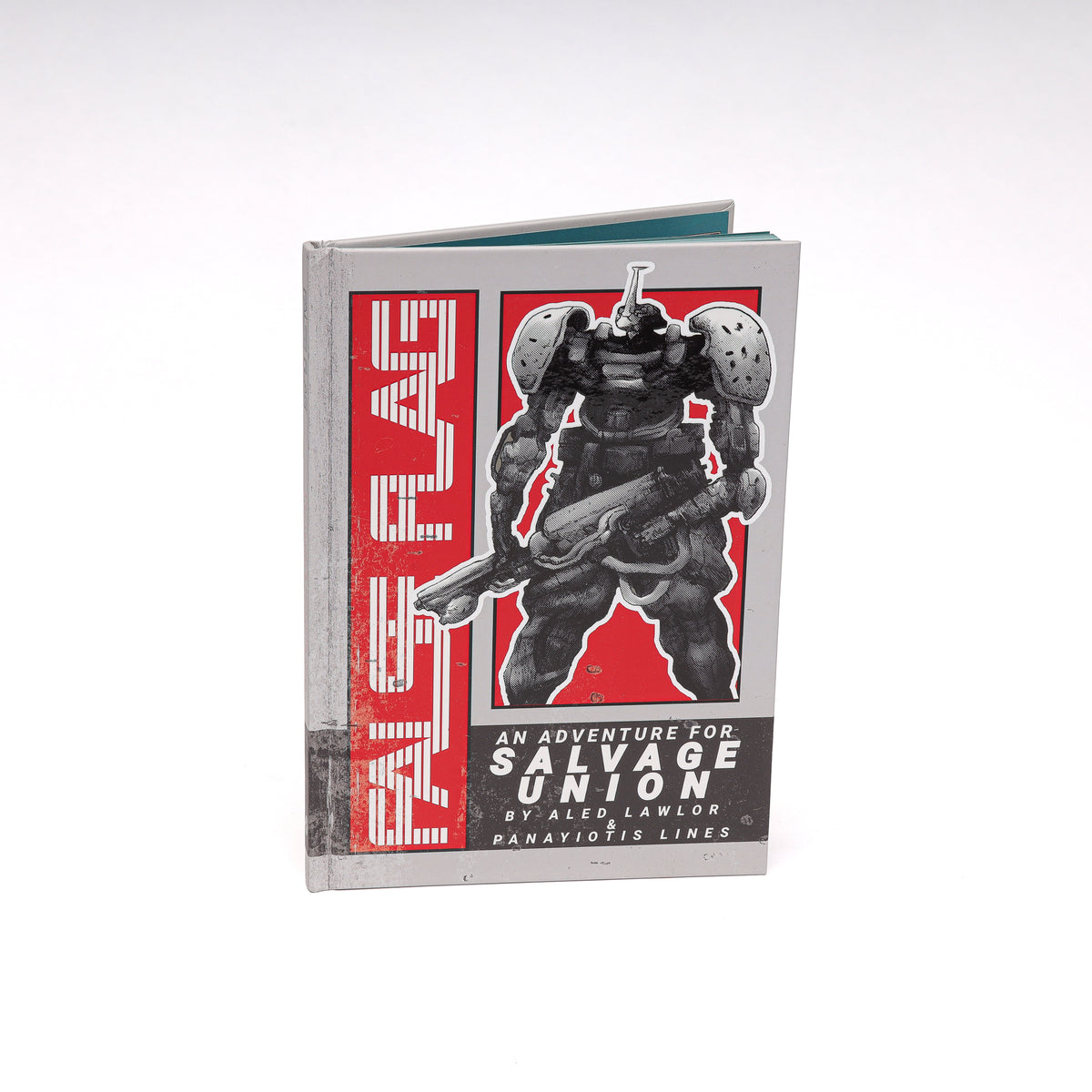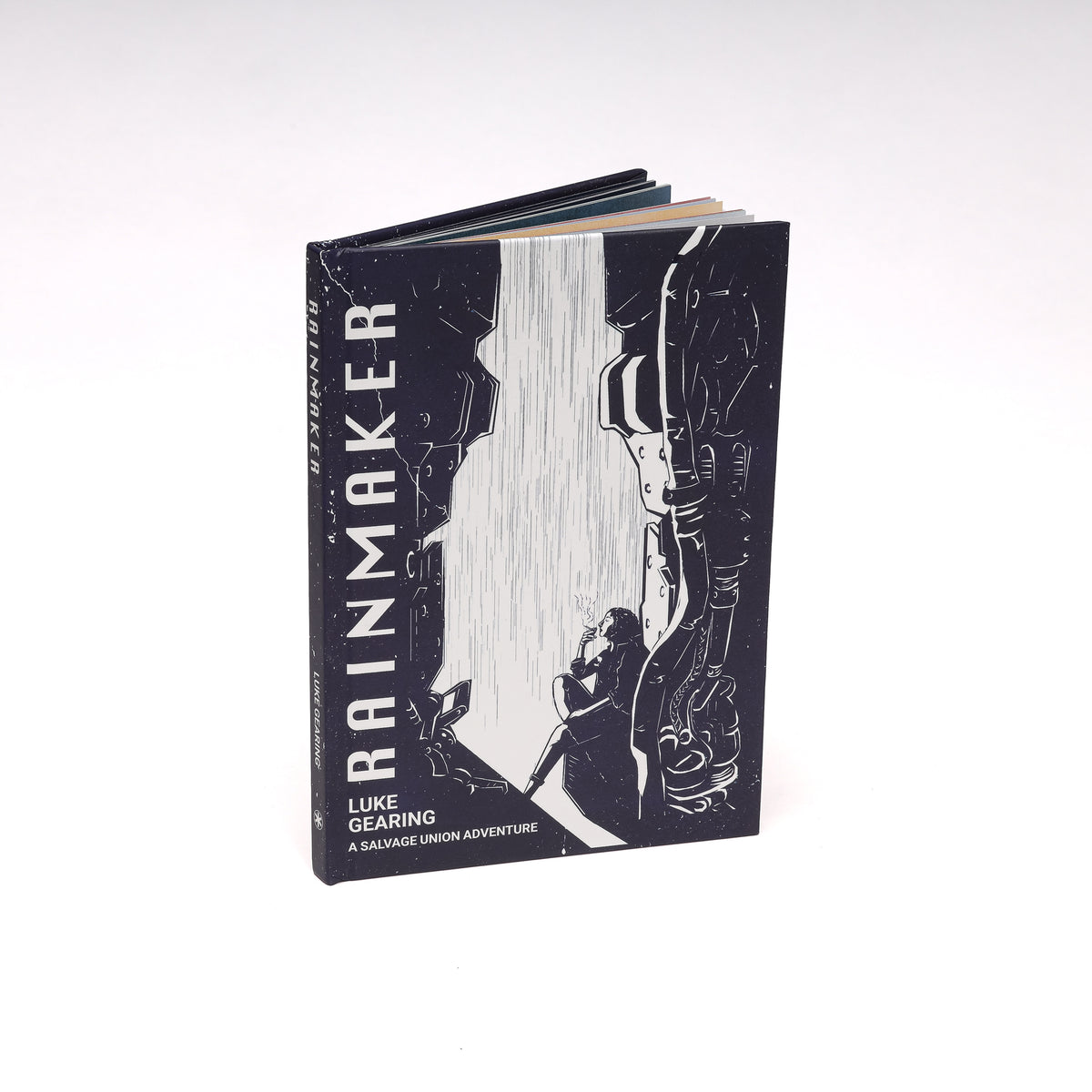
Quarrel & Fable by Sean F Smith is a Maze Rats hack intended to capture the feel of the Fighting Fantasy and choose your own adventure books much in the same way that Troika does.
It’s lightweight at a mere dozen pages or so and uses a similar core 2d6 system to Maze Rats where you’re attempting to score 9 or higher on 2d6. If you have some sort of advantage you can add another dice to the pool and pick the two highest.
There’s three stats as in Fighting Fantasy, ‘Skill’, ‘Stamina’ and ‘Luck’. Skill represents your general competence in battle and other stressful situations, Stamina is your endurance and health and Luck is, well, how lucky you are and more specifically you can spend luck to gain advantage on rolls.

These are rolled randomly, you start with 1d3+7 Skill, 1d6+14 Stamina and 1d3+3 luck. These values echo the numbers in the original fighting fantasy books starting values. There’s no classes in the game and your character is built from this core of randomisation.
To differentiate your character you get a number of special skill points based off of your initial skill stat. There’s no set list of skills however and it’s up to you to decide based, a few examples are given in the text such as magic, sneak, intimidate and stone cunning but it’s ultimately left up to the imagination of the player.
This is a neat way of doing skills as instead of having a list of specific buttons to press everyone has you end up with an idiosyncratic list unique to your character. As the points are limited but the places to spend them are not there's a trade off between picking more general skills such as 'Sneak' and more specific ones such as 'Berry Picker.' Since Luck covers most situations broadly you're further encouraged to specialise rather than generalise these skills. These points can give you advantage on a roll related to the skill and beyond that confer narrative benefits.

Your character starts with a basic weapon, d3 provisions and of course DEBT equal to your Stamina score. This is similar in vein to Electric Bastionland and gives your character an immediate goal - get out of debt. A rather millennial conceptual spin to justify the classic reward mechanic of 1 gp = 1 XP that we see in Original & Basic D&D.
Advancement requires XP and beyond finding gold you can get XP for completing quests and favours and beating adversaries. When you advance you can increase your ability scores, gain an item or gain a new Special Skill stat.
Magic requires a special skill in Magic and spells cost Stamina to cast and can require checks to cast if done so during combat or difficult situations. There’s a list of spells and effects in the game, each named a guttural sound like Nad, Nae, Fad and Fum. These effects range from causing frogs to grow in someone's mouth if they lie to producing illusory duplicates of yourself.
This system derived from Steve Jackson's Sorcery! another British fantasy game series in a similar vein to the Fighting Fantasy roots and coincidentally by the same author.
The system rewards you by actually memorising the spell names, the rules specifically stating you may study the spells out of game but during the game you have to remember how to cast them including their name, effects and what focus you need to cast them. This is an engaging magic system that rewards player skill and mastery over the system and feels uniquely ‘OSR’ in that sense.

There’s also a chance of a mishap if you try to cast a spell that does not exist which ranges from turning your items into snakes to teleport you to a different nearby location.
Monsters include weird twists on classic beasts such as Heath Dragons, which are dumpy and squat, with bent wings like a beetle that shoot jets of corrosive bile. Or Goblings who are portrayed somewhere between a potato and a knife, spindly with too wide mouths.
The game rounds off with a sample dungeon, a Gobling filled cavern designed using five room dungeon principles with a bit of variety thrown in which serves as a good introduction to the rules.
Quarrel & Fable shows how flexible both OSR systems and in particular the core of Maze Rats is in spawning out a wide variety of concepts for systems with this one inspired by the British rather than American history of tabletop games. Another game by Sean F Smith - Smithy of Sacrilege - builds on this rules lite structure fitting neatly onto a postcard!

Thanks for reading! If you're interested in a trio of old school fantasy adventures check out Albion Tales.
Subscribe to the Leyline Press newsletter here to receive updates on our blogs, promotions, games and more.
Follow us on twitter @leylinepress
Follow us on facebook @leylinepress
Follow us on instagram @leylinepress
Follow us on tiktok @leylinepress
Subscribe to this blogs RSS feed by pasting this into your feed reader - https://leyline.press/blogs/leyline-press-blog.atom






0 comments